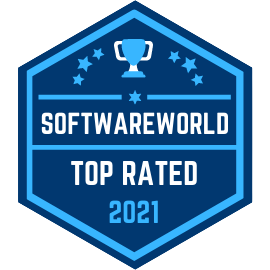In the evolving landscape of digital transformation, businesses are often faced with the choice between investing custom software solutions and purchasing off-the-shelf software. This choice is pivotal, as it can significantly influence a business’s efficiency, scalability, and competitive edge. As a digital engineering firm specializing in data analytics, custom software, and intelligent automation, we understand the nuances of this decision. In this article, we’ll explore the pros and cons of off-the-shelf vs. custom software to help you make an informed choice for your business. Plus, we’ll share insights into what to look for in a custom software development partner.
The Case for Custom Software
Custom software is tailor-made to fit the specific needs of a business, offering a personalized solution that aligns with your unique processes and goals. Here are some of the key advantages:
Tailored Fit
Custom software is akin to a bespoke suit, meticulously crafted to fit every nuance of your business operations and processes. It’s designed from the ground up to address your specific challenges and objectives, ensuring that every feature and functionality is aligned with your strategic goals. This level of customization eliminates unnecessary features that could complicate workflows or hinder productivity, providing a streamlined solution that works exactly how you need it to.
Scalability
Custom software solutions are built with the future in mind, allowing for scalability as your business grows or changes direction. This means that as your business expands, your software can be evolved to accommodate new users, more complex workflows, or additional features without starting from scratch. It’s an investment in your business’s future, designed to evolve with your growth.
Competitive Advantage
In a marketplace where differentiation can be key to success, custom software offers unique functionalities that set your business apart from competitors. This could be a pioneering customer service interface, advanced data analytics capabilities, or streamlined operations that significantly reduce costs. Custom software can become a core component of your competitive strategy, offering innovative solutions not readily available to your competitors.
Integration Capabilities
One of the standout benefits of custom software is its ability to integrate seamlessly with existing systems and software within your organization. This means you can connect your new software with your current CRM, ERP, and other tools, enhancing data flow and reducing the risk of silos. Integration facilitates comprehensive insights, better decision-making, and a unified platform for managing various aspects of your business.
Ownership and Control
Opting for a custom software solution is akin to owning a home versus renting one. Just as home ownership affords the freedom to remodel, expand, or renovate according to needs and tastes, custom software ownership offers businesses complete control over their technology environment. This ownership means you’re not at the mercy of a third-party provider’s changes, pricing adjustments, or discontinuation of service. You have the autonomy to update features, scale, or modify the software as your business evolves, without worrying about violating a license agreement or being forced to upgrade to a more expensive package.
Custom software development often requires a higher upfront investment of time and budget, including the cost of design and development of the tool. Building your own software also requires selecting a reliable software development team to ensure the project’s success.
The Case for Off-the-Shelf Software
Off-the-shelf software is pre-made and readily available for purchase or subscription. Its key benefits include:
Cost-Effectiveness
Off-the-shelf software is often perceived as the more economical choice, especially for startups and small businesses with tight budgets. The initial cost is typically lower since the development costs are spread across many users. Furthermore, this option often includes a subscription model, which means businesses can avoid large upfront investments and instead pay a recurring fee. This can be particularly attractive for businesses looking to manage cash flow effectively. Larger teams typically see user license fees grow significantly, therefore off-the-shelf software tends to be an economic solution for smaller teams.
Quick Deployment
Since off-the-shelf software is pre-built, it can usually be deployed immediately after purchase, allowing businesses to benefit from new software solutions without the lengthy development times associated with custom software. This can be a significant advantage for businesses needing to implement new solutions rapidly to meet regulatory requirements, customer demands, or market changes.
Updates and Maintenance
The responsibility for updates, maintenance, and security often lies with the software provider, which can reduce the IT workload for your business. This means your team can focus on core business activities rather than managing software issues. Regular updates also ensure that the software remains compatible with other technologies and compliant with industry standards and regulations.
Making the Right Choice
Choosing between custom and off-the-shelf software depends on various factors, including your business needs, budget, timeline, and the level of customization required. Custom software may be the way to go if your business demands unique features, high scalability, and integration capabilities. On the other hand, if you need a quick, cost-effective solution with standard functionalities, off-the-shelf software could be more suitable.
Finding the Right Custom Software Development Partner
When considering custom software, selecting the right development partner is crucial. Here are some things to look for in a potential partner:
Proven Expertise
Check their portfolio and case studies to ensure they have experience delivering solutions that align with your business needs.
Full-Service Team
Building successful digital products takes strategic product planning, strong UX/UI, and skilled software developers. Look for a partner that has a full team across product, design, and development.
Technological Proficiency
They should have expertise in the latest technologies and frameworks to build scalable and future-proof solutions.
User-Centric Approach
This one is a bit of a buzzword, but it’s important to find a team that can understand users and implement the right amount of user research and testing.
Focus on Your Business Goals
A good partner takes the time to understand your business and tailor the development process to your specific requirements.
Transparent Communication
Effective and transparent communication throughout the development process ensures that the project stays on track and meets your expectations.
Support and Maintenance
Post-deployment support and maintenance are essential for the long-term success of custom software.
The decision between custom and off-the-shelf software is not one-size-fits-all. It requires carefully assessing your business needs, budget, and long-term goals. Regardless of your chosen path, ensuring that your software solution aligns with your business objectives is key to leveraging technology for growth and competitiveness. And when opting for custom software, selecting the right development partner can make all the difference in realizing your vision.









